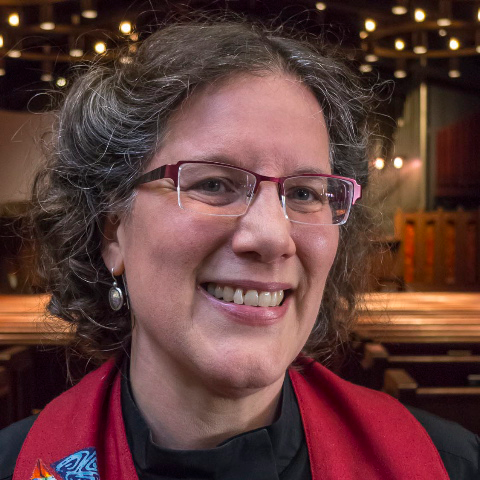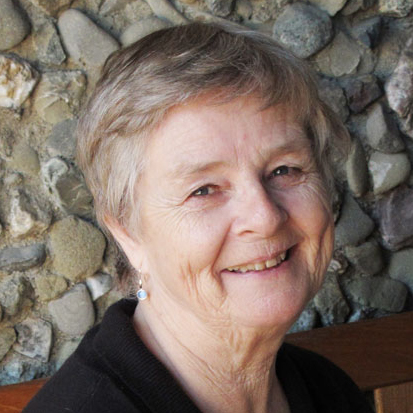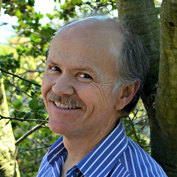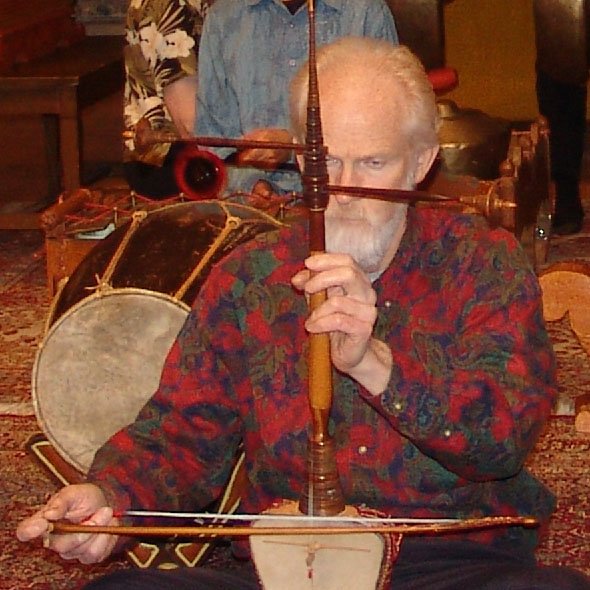{podcast_episode 205}
Story for All Ages
How many people have heard of ‘spoonerisms.’ With spoonersims you have to whip your flurds. If you don’t whip your flurds, you will get trost in lanslation and it won’t sake mense.
An example of a spoonerism is the story of Rindercella and the pransom hince. Where Rindercella lived with her three sad bisters. And at the end, as she was running out of the boil rawl in her drancy fess, she heard the moke of stridnight. And she tried to run down the stairs so fast she slopped her dripper!
Okay… so, if you understand that, I’m going to sell you the tory about Univarian Unitersalism – the one roo teligion.
The thing you have to know is that in order to be a roo teligion it must leach tuv. When all is dead and son, if a teligion doesn’t leach tuv, it isn’t roo.
There are many other un-roo teligions and, of course, they don’t leach tuv. They are boo tizzy snandling hakes. With all the wrobblems in the purled, why would any roo teligion waste its time snandling hakes? I think it’s because they believe that hake snandling will soregive your fins. Because if your fins aren’t soregiven you’ll hind up in well.
Another thing you won’t find in roo teligion is teaking in spungs. Members of these congregations spontaneously haze their rands and jok tibberish. They profess to be communicating with the spoley hear-it.
That’s one of the reasons I became Univarian Unitersalist. I wanted a chuvley lurch where no one hinds up in well. Even if all your fins aren’t soregiven.
Now, you may discover that some Univarian Unitersalists will occasionally wist their turds. But there is no teaking in spongs. We believe all seaple are paved. And that everyone has dirth and wignity.
So, if you’re looking for a chuvley lurch where all your fins are soregiven and where everyone is treated with dirth and wignity, go to a chuvly Univarian Unitersalist lurch. You will become part of the one roo teligion where no one hinds up in well.
Did that sake mense?
Sermon
30 years ago, when I was an undergrad in Physics, I studied the work of a Physics professor named David Bohm who was here at UC Berkeley. I was particularly interested in his work around Einstein’s the Unified Field Theory.
Of the books I came across was Bohm’s book called “Wholeness and the Implicate Order”. I was fascinated by it. But it wasn’t about Unified Field Theory. It was about language. Communication. And specifically, ‘dialogue.’
“The word, ‘dialogue’ comes from the Greek. Dia – through, logos – word. Through words, we make meaning. Through dialogue, we share that meaning.
“A key difference between dialogue and an ordinary discussion,” Bohm wrote, “is that within the latter, people usually hold relatively fixed positions and argue their points of view attempting to convince others to change. At best this may produce agreement or compromise. But it rarely produces anything truly creative. Furthermore, whenever anything of deep significance is discussed, positions often become rigidly non-negotiable and the exchange degenerates into either (entrenched) confrontation – where there is no solution – or into a polite avoidance of the issues. Neither of these outcomes produce a truly integrative evolution of ideas – just an attack on, or protection of, ideologies.
“In dialogue, however, one can listen with interest and curiosity – even change his or her point of view when there is good reason to do so. Clearly some spirit of love need be present.”
Bohm went on to say, “…We need to learn how to dialogue in order to deal with all the fragmentation in the world. Overcoming fragmentation can only happen when dialogue is employed to help produce an understanding of the collective wholeness of which we are all part.”
Discovering that book as an undergraduate, I was initially disappointed that it didn’t have anything to do with Unified Field Theory. But few books have ever ‘stayed with me’ over time in such a compelling fashion so as to become part of my own internal dialogue. Few ideas have come to rest in my consciousness in such a central fashion as to continually usher a ‘call.’
This morning I want to talk about what ‘calls’ us. How such calls announce themselves and how they compel us toward such an implicate ordering of our life.
<><><>
During my sabbatical in 2005, I found myself standing at the counter of a bakery, ten thousand miles from home, in the small Greek village of Kastraki. A week of my sabbatical was spent on a week long retreat at the ancient monasteries of Meteora. The food at the monastery was intentionally sparse, and after four days, I was hungry. The monks laughed when my stomach growled during the morning prayers. So I hiked the 5 miles down the mountain to find some food in the village.
It was spring – and one of the readings in the lectio devina (study of scripture), was about Pentacost – the story in the gospels of how the holy spirit visited the disciples, granting them the power to ‘speak in tongues’ so that they could be understood by the people in whatever foreign land they travelled to.
I remember being frustrated at only knowing a few Greek words and phrases and being constantly misunderstood when ordering food. I wanted to be able to speak in tongues. I wanted to order anything and be understood.
So – trusting the holy spirit to be with me – I decided to try to speak the language of the people who’s food I was buying. So I smiled at the middle aged woman behind the bakery counter and without even checking my Greek dictionary, asked confidently “if I could have her two mothers who had milked the hot goat.” Her eyes got very wide.
It was the look she gave me which helped me conclude that the Holy Spirit was definitely NOT with me. I scrambled for my dictionary. But, before I could correct myself, and before her hand could cover her mouth, she spit on me as the laughter came bursting forth. After a brief explanation using mostly charades, we learned three things about one another: (1) that she didn’t mean to spit on me. In fact, she liked me so much she gave me some motherly-milked hot goats for free and called her husband down from their upstairs home. Thankfully, he didn’t spit on me either. His slightly better English helped us all conclude that (2) I didn’t mean to insult her mother – or her goat. I just wanted two feta cheese pastries and to be able to speak the language. And, finally (3) they both seemed appreciative that I would attempt to speak their language, rather than just pointing or insisting that they speak mine.
Whoever said, ‘It’s all Greek to me,’ probably never had their mother accused of milking hot goats.
<><><>
Another story – not as successful – is about a South African by the name of Louie Vandermeuver – who was an organizational consultant. He was hired to work with one of the largest companies in South Africa – an Electrical Utilities Company called Escom. The year was about 1986 – at the heart of apartheid. The plant, which had been very competitive and profitable for years, was now having trouble keeping up with innovations in the industry. And when they got to the heart of the problem, they discovered that although all their engineers were extremely hard working, they demonstrated an almost complete inability to work in teams. To share information. They were all prideful and protective of their individual work.
Vandermeuver, who’d spent a lot of time in the US, knew the issue was cultural. He knew that white South African culture was shaped much like ours: people who saw themselves as having tamed a vast wilderness with their bare hands. They could be very influential. But stubborn. But not very influence-able. And without a cross pollination of ideas, they could only go as far as their own limited imaginations.
After unsuccessfully hiring many white South African consultants, Vandermeuver tried bringing in 10 black South African consultants. These consultants – who’d been raised under a very different set of cultural assumptions, were less competitive and more cooperative. Instead of understanding ideas from a perspective of individual ownership, they held a communal or shared understanding.
One of the consultants they brought in was a man by the name of Joseph who quickly got everyone’s attention. On the third day, after a rather intense meeting, Joseph was clearly upset. And he was more upset that none of the other engineers seemed to notice. Vandermeuver, seeing his distress, asked him about it.
And Joseph said, “Oh! Mr. Louie, don’t you see what just happened?” When Vandermeuver asked him to explain, Joseph continued. Didn’t you see?!? During the meeting, I shared my idea and no one said anything about my idea!?! And Vandermeuver remembered saying, “Oh, yes… it was a very intense conversation and you made a comment and no one responded.” And Joseph said, “YES!” And Vandermeuver explained saying, “Well, I’m sorry, Joseph… we all get very worked up and obviously someone should have said something about your comment… it was very rude!”
“Mr. Louie, you do not understand! They do not make me a person!”
<><><>
There is a concept in South African culture called ‘Ubuntu.’
“A person becomes a person through other people”.
Archbishop Desmond Tutu describes Ubuntu this way:
“My humanity is inextricably bound up in yours. Someone discovers Ubuntu as they are connected to and shaped by others who share their wholeness. A person with Ubuntu does not feel less whole when their wholeness spreads into those around them.”
Ever since I was a young man, I’ve noticed how the world seems to be divided. Fragmented into subsets despite an undeniable yearning for wholeness.
I became a Unitarian Universalist minister after an unsatisfied quest to find wholeness through science. Becoming a UU minister means I never learned to speak in tongues. It means being no stranger to being misunderstood. And laughed at. And, on rare occasions, spit on. I’ve found myself in the company of people who felt slighted or threatened by something I’ve said and I’ve watched them retreat into fragmentation instead of extend toward seeking union or wholeness.
In such moments, I know that responding with an equal and opposite umbrage only serves to increase fragmentation. If my ministry has ever understood Ubuntu – or had any capacity to help offer a person a chance to discover their own personhood, it is because I’ve been able to set my own pride aside. For, it is impossible to extend to someone something as complex and delicate as their essence… or spark… or personhood – while I am desperately clinging to my own.
<><><>
Think back for a moment to the words spoken by Michele about the builders of the great Tower of Babel:
“Come, let us build ourselves a city and a tower with its top in the heavens, and let us make a name for ourselves, to know and be known, lest we be disconnected and scattered over the face of the whole earth.”
Let me ask, in your encounters with people who go on and on about themselves, what is your usual response?
What happens for most people is that – even if they can see beyond the arrogance of a prideful person strutting around their plumage, we quickly understand the wisdom of Ben Franklin when he said, “A person all-wrapped-up in themselves usually makes a pretty small package.” The truth is, we get bored hearing people go on and on about themselves and lose interest. We stop paying much attention.
Did you know that in the entire Bible, God only comes down to earth two times. Why would one of those times be for the purpose of mixing up the language? Isn’t being ‘one people’ and learning to speak the same language a good thing? It is… unless… it becomes clear that the language the people learn to speak was one based on pride.
The story is most often translated as saying God came down and mixed up their language so that they could not understand one another. But the Hebrew word translated as ‘understand’ is ‘shema’ which more often is translated as, ‘hear’ or ‘listen.’ I don’t think work on the tower was abandoned because people stopped understanding to one another. But because people stopped listening to one another.
<><><>
It just so happens that I met God once. At least I met someone who did exactly what I would imagine God did during the whole Tower of Babel incident. Only she did it as the dean of our UU Leadership School nearly 20 years ago. Her name was Helen Bishop.
I was one of 7 people serving on the faculty of Leadership School. We had come together for two days of team building before the students arrived. And there was one exercise that I fondly refer to as ‘The Babel-izer.’ It was designed to help us learn how to speak the same language – get on the same page and work together.
The actual name of the exercise is called, “Broken Squares.” And it started with the 7 faculty members sitting around a round table. Helen gave us each a manila envelope and told us not to open it. Inside, she explained, we would find two, three or four pieces of card board cut into shapes. Our task was to see how long it would take all of us to take the pieces and form a completed square in front of us.
There were rules (which we were told would make it more fun):
- This exercise was to be done in complete silence. No talking.
- We were not allowed to point or signal to other participants with our hands in any way.
- Each participant must put together his or her own square. No one else could show any other participant how to do it or do it for them.
- We weren’t allowed to take – or even request – a piece from another player. But we could give our pieces, one at a time, to any other participant. And other participants could give pieces to us.
- Finally, we were reminded that we were being timed to see how quickly everyone could complete the square in front of them.
When we were told to begin, I opened my envelope and pulled out my four pieces. I couldn’t make a square. I played with them for a few moments to see what I had and what I needed. Then I began to look around at what everyone else had. Right away I saw that I could trade for a piece that would help me complete my square. But the rules said I couldn’t reach out and take the one I needed. So I looked in the direction of the person who had my piece – and at what pieces they needed and I gave them my extra piece. In return, they offered me a different piece than I needed. I took it and placed it next to mine to try to demonstrate that it was obviously the WRONG piece. Then I handed it back to them. Just as I hoped, they noticed and gave me the piece I needed. I completed my square. I was the first one finished. I sat back – feeling very proud of myself – and looked around at the others trying to work on their squares – They all seemed to be fighting the urge to talk out loud or grab their missing piece. Knowing I had used all my pieces and didn’t have any to give away I just watched.
When Helen saw that I finished she walked over to me. She peered over my shoulder for a second. Then, she reached out and mixed up my square. I looked at her, incredulous. I looked back at my mixed up square. I put my square back together and looked back at her. She looked at me. Then looked at my square. And then reached out and mixed it up again. Now I was indignant. I reached out and put my square together again. I tried to protect my square. But she messed it up again.
I sat there frustrated. Meanwhile a few others had completed their square – which made me even more angry – and the rest were still scrambling – unsuccessfully – to complete their squares.
What it was taking me so long to figure out was that there was only one way to put all the squares together and that one person completing their square in a certain configuration would make it impossible for others in the group to complete theirs. I had the missing piece that would unlock the network for everyone to be successful. What I needed to do – what Helen was prompting me to do – was to re-imagine how to put my own square together instead of getting fixated on my original way. Which I eventually did. But not before I – and everyone else in the group – felt the sting of my pride.
<><><>
Initially, when I picked up David Bohm’s book, “Wholeness and the Implicate Order,” I was disappointed that it wasn’t about the Unified Field Theory. It has been the humbling call of my life to realize that THAT book was ALL about the Unified Field Theory.
Again, the words of Desmond Tutu:
“A person becomes a person through other people. My humanity is inextricably bound up in yours. Someone discovers Ubuntu as they are connected to and shaped by others who share their wholeness. A person with Ubuntu does not feel less whole when their wholeness spreads into those around them.”
Listen. Understand. Shema. Open your heart beyond tolerance and you will understand: There is a greater call – beyond pride – that calls us to come together. We do not need to teak in spongues or be visited by the spoley hear-it to know Ubuntu.
This church is trying to help us put our own squares together. To create with us a Unified Field Theory. We are called into dialogue. Through observation, listening and presence we will discover the truth of which we are part.
Take a risk. Let go of pride. Lift up for someone, their essence. Reflect back to them their spark. It is the calling of Ubuntu to come together.
To the Glory of Life.
Copyright © 2014, Rev. Greg S. Ward. All Rights Reserved

















